Materials for Take-Out Boxes and To-Go Containers
Comparing Different Materials for Take-Out Boxes and To-Go Containers
In the competitive restaurant industry, you’ll take any edge you can get over your competitors. Even choosing the right to-go containers can make a difference for your customers. A quality container can help keep food warm and safe in transit. Eco-friendly options made from recycled and compostable materials can help give your eatery a savvy, green, sustainable image. But with so many different options to choose from, it’s not easy to know which take-out boxes are the right choice for your business and your customers. Compare the various materials available for to-go containers here from Richmond Advantage. We’re proud to stock a variety of food-safe to-go containers at outstanding prices. Discover and compare your options below!
Polypropylene & Polyethylene (Plastic)
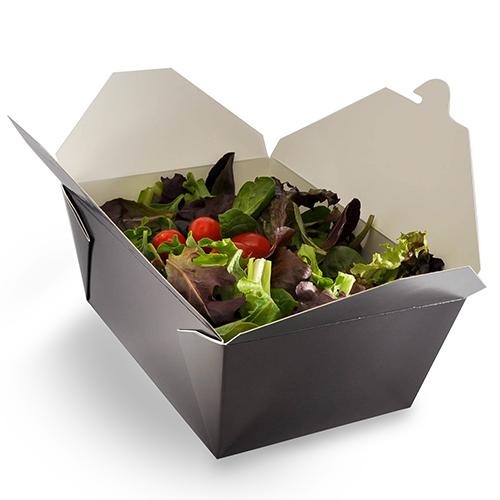 Paper
Paper
RIC Code: None
Strength: ✔
Eco-Friendly? ✔✔
Compostable? Yes
Microwavable? No
Price: $$
It might seem like paper boxes are obviously the most eco-friendly option. However, that’s not always the case. Regular paper is recyclable – but once the oils from food soaks into the paper, that paper can no longer be recycled at most recycling plants. It is also often bleached. That means used paper food containers are destined for the landfill. However, the paper can be composted. Because the paper may be coated with wax or plastic to prevent leaks, and these materials could leach into the food when exposed to heat, paper food containers are not the best choice for the microwave either. On the bright side, they’re lightweight and fold flat so you can store a whole bunch of them in a small space. They’re also a relatively affordable option for your business.
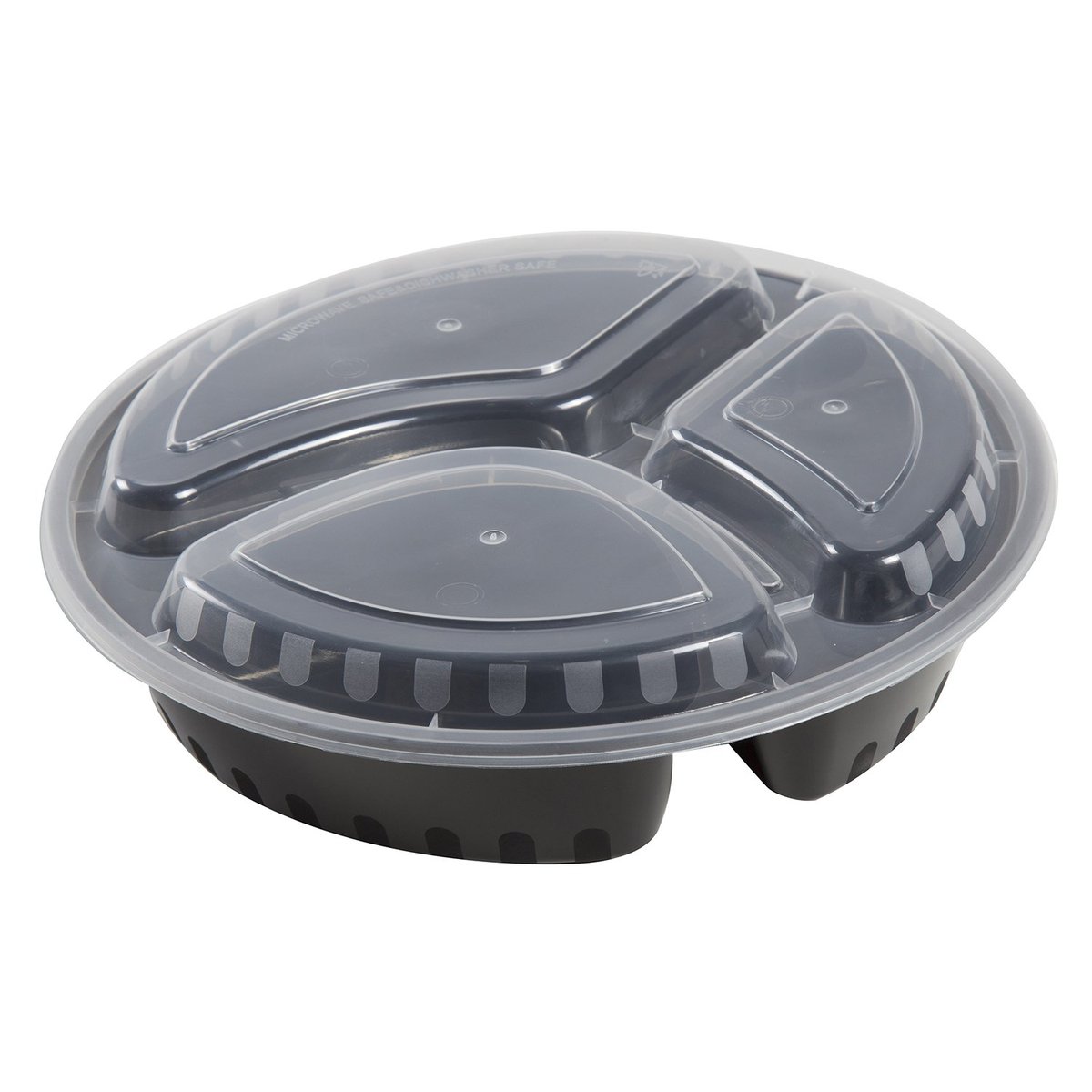 Polypropylene & Polyethylene
Polypropylene & Polyethylene
RIC Code: ♴ ♶ ♷
Strength: ✔✔✔
Eco-Friendly? ✔✔
Compostable? No
Microwavable? Yes
Price: $
Your typical plastic to-go container will be made of polypropylene or polyethylene (PET). Both plastics are rigid and food safe, making them ideal containers. They protect their contents better than paper while providing a little bit more insulation to keep things warm. The FDA approves the use of these plastic containers for use in the microwave. Best of all, while they aren’t biodegradable, these plastics can often be recycled. They’re an extremely cost-effective option for restaurants, cafeterias, and catering halls.
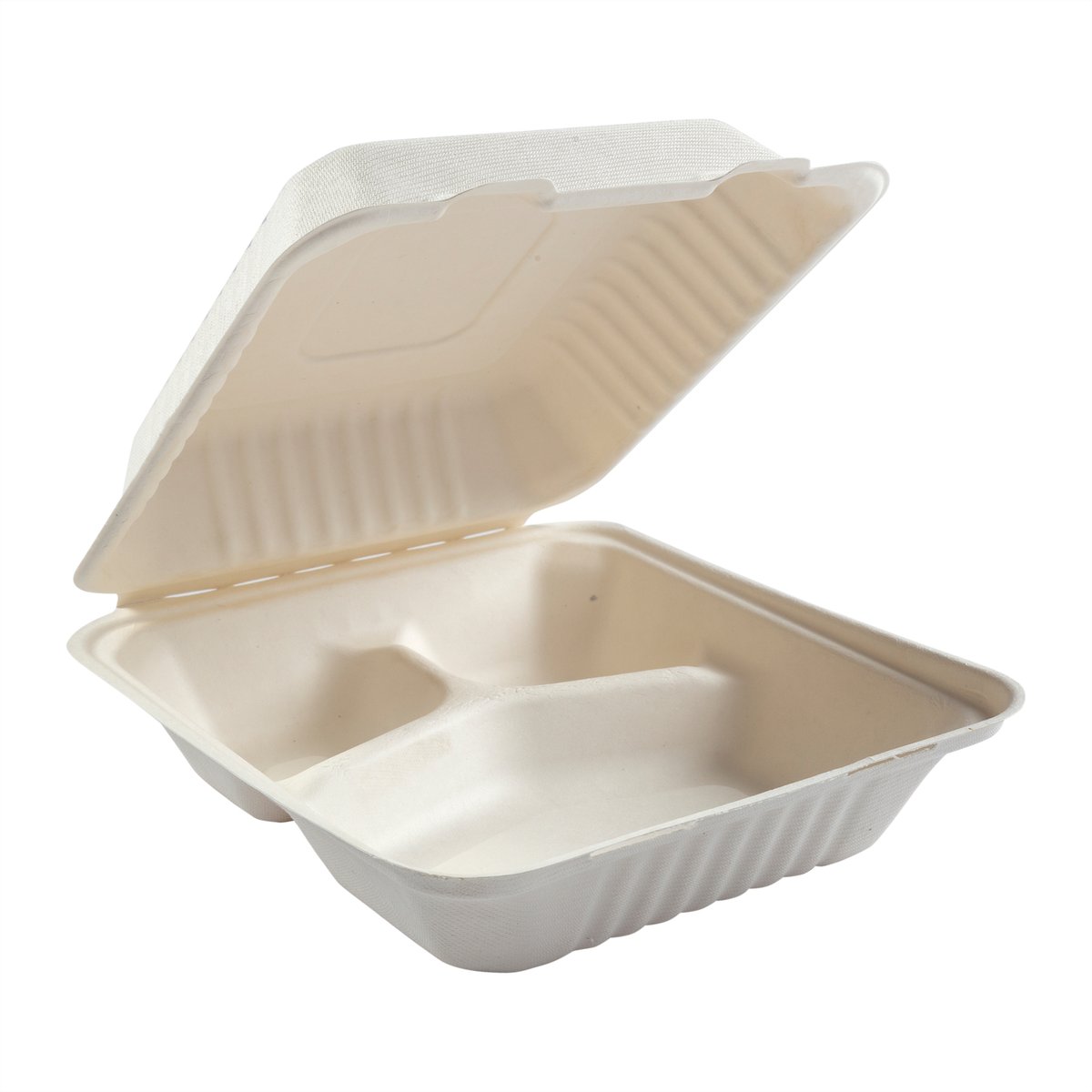 Bagasse
Bagasse
RIC Code: None
Strength: ✔✔
Eco-Friendly? ✔✔✔
Compostable? Yes
Microwavable? Yes
Price: $$
Bagssee is a plant-based fiber material that’s sustainably sourced making it a very green choice! Made from pressed fibrous sugarcane pulp, bagasse take-out containers are similar to paper but even more durable and recyclable. Better yet for your diners, it’s stiffer and stronger so it can better protect to-go orders. It’s also surprisingly affordable because bagasse is a byproduct of manufacturing processes that until recently went to waste.
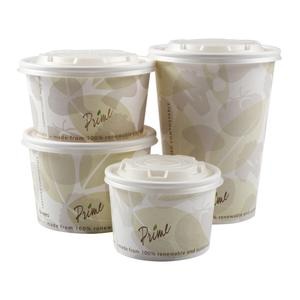 PLA Bioplastic
PLA Bioplastic
RIC Code: ♹
Strength: ✔✔✔
Eco-Friendly? ✔✔✔
Compostable? Yes
Microwavable? No
Price: $$$
Unlike polypropylene & polyethylene, PLA plastic (polylactic acid) is made from plant-based materials, making this plastic completely compostable and biodegradable! It also provides the outstanding rigidity and tear resistance you expect from plastic. PLA to-go containers provide the best of both worlds when it comes to practicality and eco-friendliness. Its only real drawback is that it’s not microwave-safe as PLA will melt when exposed to high heat.
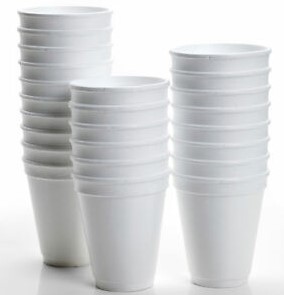 Styrofoam
Styrofoam
RIC Code: ♹
Strength: ✔✔
Eco-Friendly? ✔
Compostable? No
Microwavable? No
Price: $$
Styrofoam is made from basic polystyrene plastic that is injected with air so it’s lightweight and soft to the touch. All that trapped air makes styrofoam a great insulator, which is why it’s so commonly used for take-out containers and cold drink cups. However, styrofoam is not biodegradable and hard to recycle. It’s generally not microwave-safe. It also takes up a lot of space, which can make storage a challenge.
|
Container Material |
RIC Code |
Strength |
Eco-Friendly? |
Compostable? |
Microwavable? |
Price |
|
Paper |
None |
✔ |
✔✔ |
Yes |
No |
$$ |
|
Polypropylene |
♷ |
✔✔✔ |
✔✔ |
No |
Yes |
$ |
|
Polyethylene (PET) |
♴ or ♶ |
✔✔✔ |
✔✔ |
No |
Yes |
$ |
|
Bagasse |
None |
✔✔ |
✔✔✔ |
Yes |
Yes |
$$ |
|
PLA Bioplastic |
♹ |
✔✔✔ |
✔✔✔ |
Yes |
No |
$$$ |
|
Styrofoam |
♹ |
✔✔ |
✔ |
No |
No |
$$ |
FAQs:
Which plastic containers are safe for food storage?
To identify the type of plastic used to make a container, look for the number inside the familiar recycling symbol (a triangle made from three folded arrows). You’ll usually find it on the bottom of the container. This is the Resin Identification Coding System (RIC) created by the Plastics Industry Association. Numbers 1 through 7 identify the resin used to make the plastic in the container. RIC codes 1, 2, 4, and 5 are considered safe by the FDA and the American Academy of Pediatrics. RIC codes 3 and 6 are better avoided for food storage. Code 7 indicates a less common form of plastic or a mixture of resins is used. Some RIC code 7 plastics are food-grade and others are not.
What is food-grade plastic?
A plastic polymer material can be considered food-grade if it can come into direct contact with food without chemicals or by-products leaching into the food. The FDA will certify that a plastic material product is food-safe. According to Plastics International, “They want to make sure there is nothing in the material that can harm the food supply. In addition, if anything affects the color, odor, or taste of the food, it will automatically fail the compliance rating.”
Can you microwave styrofoam to-go boxes?
No. Styrofoam is made from polystyrene, which has a RIC code of 7. Styrofoam is safe for food storage and provides outstanding insulation properties to keep hot food hot and cold food cold. However, polystyrene breaks down when exposed to high temperatures. It is not over or microwave-safe .






